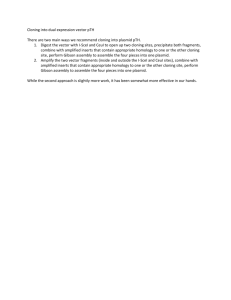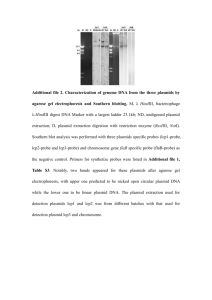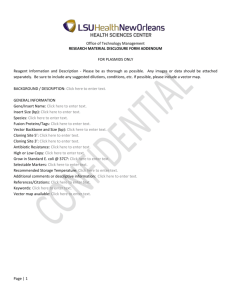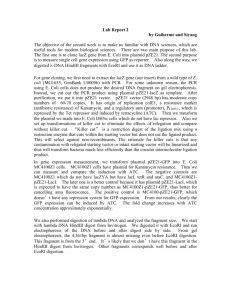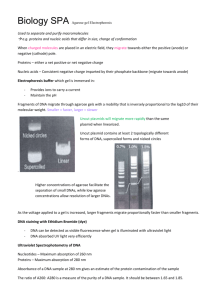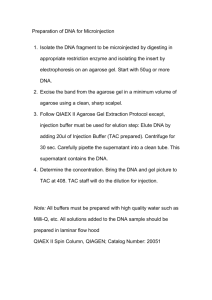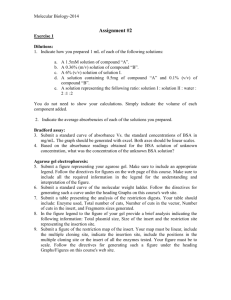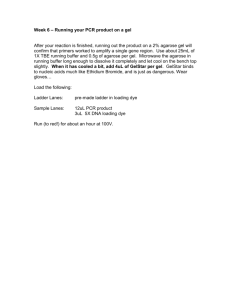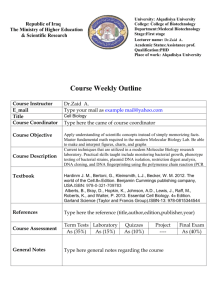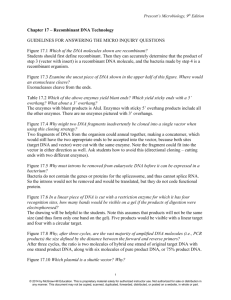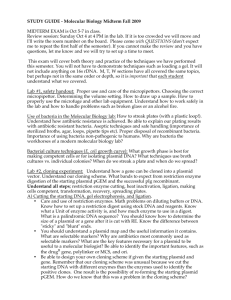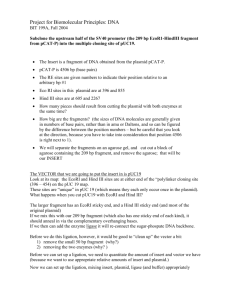Cloning lab
advertisement
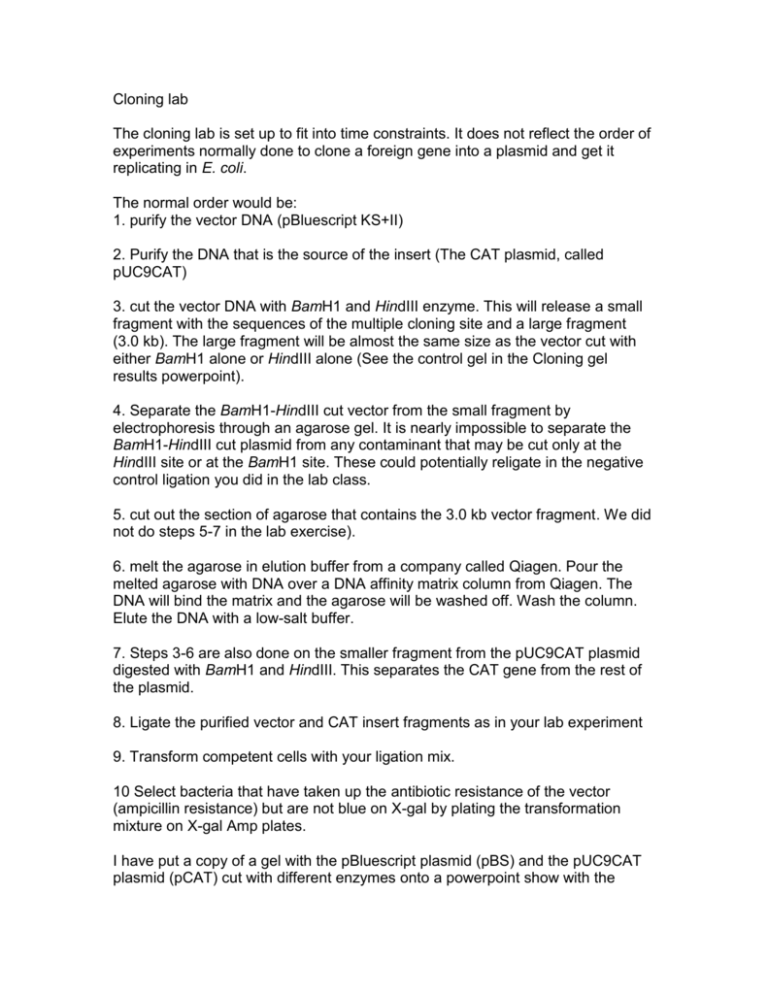
Cloning lab The cloning lab is set up to fit into time constraints. It does not reflect the order of experiments normally done to clone a foreign gene into a plasmid and get it replicating in E. coli. The normal order would be: 1. purify the vector DNA (pBluescript KS+II) 2. Purify the DNA that is the source of the insert (The CAT plasmid, called pUC9CAT) 3. cut the vector DNA with BamH1 and HindIII enzyme. This will release a small fragment with the sequences of the multiple cloning site and a large fragment (3.0 kb). The large fragment will be almost the same size as the vector cut with either BamH1 alone or HindIII alone (See the control gel in the Cloning gel results powerpoint). 4. Separate the BamH1-HindIII cut vector from the small fragment by electrophoresis through an agarose gel. It is nearly impossible to separate the BamH1-HindIII cut plasmid from any contaminant that may be cut only at the HindIII site or at the BamH1 site. These could potentially religate in the negative control ligation you did in the lab class. 5. cut out the section of agarose that contains the 3.0 kb vector fragment. We did not do steps 5-7 in the lab exercise). 6. melt the agarose in elution buffer from a company called Qiagen. Pour the melted agarose with DNA over a DNA affinity matrix column from Qiagen. The DNA will bind the matrix and the agarose will be washed off. Wash the column. Elute the DNA with a low-salt buffer. 7. Steps 3-6 are also done on the smaller fragment from the pUC9CAT plasmid digested with BamH1 and HindIII. This separates the CAT gene from the rest of the plasmid. 8. Ligate the purified vector and CAT insert fragments as in your lab experiment 9. Transform competent cells with your ligation mix. 10 Select bacteria that have taken up the antibiotic resistance of the vector (ampicillin resistance) but are not blue on X-gal by plating the transformation mixture on X-gal Amp plates. I have put a copy of a gel with the pBluescript plasmid (pBS) and the pUC9CAT plasmid (pCAT) cut with different enzymes onto a powerpoint show with the results of the electrophoresis gels done in the lab period. The powerpoint show is in the cloning lab section and called, Cloning gel results.
